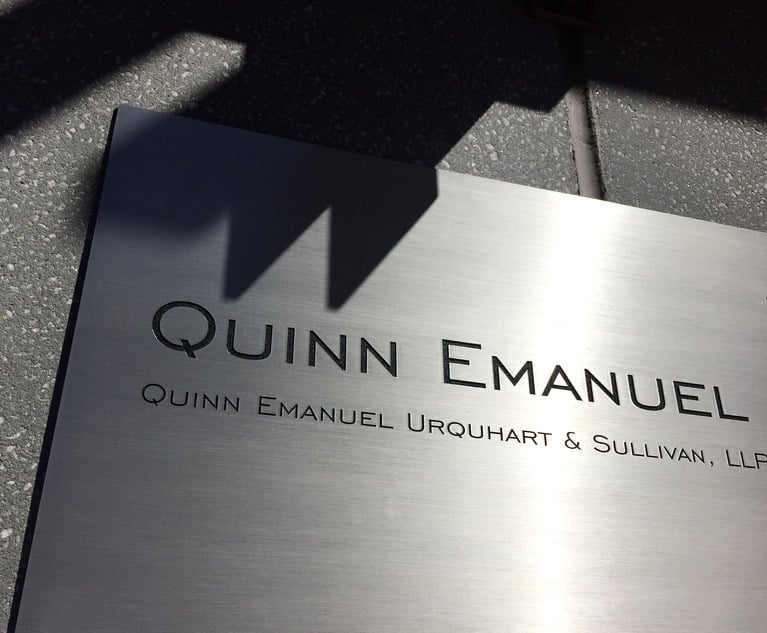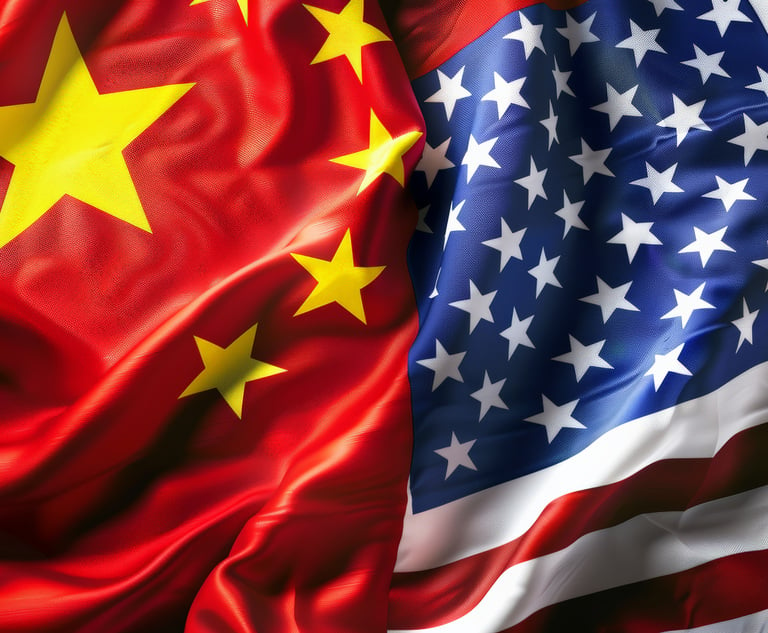M&S case drags to close with little applause for watchdog
A central part of the Solicitors Regulation Authority's (SRA's) conflicts case against Freshfields Bruckhaus Deringer was torpedoed in May, it emerged last week, following a three-year process that ended in a £59,000 penalty for former head of corporate Barry O'Brien.
August 09, 2007 at 12:29 AM
4 minute read
A central part of the Solicitors Regulation Authority's (SRA's) conflicts case against Freshfields Bruckhaus Deringer was torpedoed in May, it emerged last week, following a three-year process that ended in a £59,000 penalty for former head of corporate Barry O'Brien.
 At the Solicitors' Disciplinary Tribunal (SDT), O'Brien admitted charges that he acted against the best interests of client Marks and Spencer (M&S) and to bringing the profession into disrepute. He was fined £9,000 out of a maximum of £10,000 plus the SRA's £50,000 costs and apologised for what he called a "bona fide" error of judgement.
At the Solicitors' Disciplinary Tribunal (SDT), O'Brien admitted charges that he acted against the best interests of client Marks and Spencer (M&S) and to bringing the profession into disrepute. He was fined £9,000 out of a maximum of £10,000 plus the SRA's £50,000 costs and apologised for what he called a "bona fide" error of judgement.
However, the SRA dropped some of its accusations just days before the hearing and, as exclusively revealed on legalweek.com, chose to drop the charges against Freshfields head of corporate Tim Jones.
A key reason for the change is understood to relate to a recent tribunal, Connolly v Law Society, in which the SDT accepted that the existence of a conflict of interest is a question of professional judgement. On appeal, the High Court accepted that an honest and genuine decision of a solicitor regarding a professional judgement does not necessarily give rise to a disciplinary offence.
Although the Chelmsford-based solicitor Brian Connolly still failed to win the majority of the appeal, the case helped O'Brien to finally agree a settlement with the SRA in which the case against Jones was dropped and he would receive nothing more than a fine.
Last week's result was widely considered to be a minor penalty for O'Brien and Freshfields, although many accept O'Brien and the firm have suffered significant reputational damage over the three-year period as a result of the investigation.
The long-running probe began when the regulatory side of the Law Society (now the SRA) began investigating the affair in 2004 after Freshfields was removed from its role on Philip Green's £9bn bid for M&S because it had previously advised the targets. Despite this, the tribunal heard that Green still paid the firm for 4,200 hours of work.
Even so, the Law Society took nearly two months to start its own inquiry and then only reluctantly began investigating after internal pressure to act. In October 2006 the SRA then referred Jones and O'Brien to the SDT, which has the power to reprimand, fine and suspend or strike off solicitors.
While the majority of the SRA's cases are dealt with within a year, it is understood that Freshfields proved a difficult firm to investigate and that the regulatory body was hampered by its own rules stating that it can only pursue individual lawyers and not firms. This will change with the implementation of the Legal Services Act, but it meant the SRA's initial interest in four Freshfields partners was eventually narrowed to only one.
One corporate partner at a magic circle rival said: "The SRA look like administrators. It is a structure that is rather outmoded. If anything, the fine should be going against the firm rather than the individual. No-one has been deliberately dishonest. It is a bit like drink driving – most people would think 'that could have been me'.
"All conflicts look easy in retrospect – you make a number of these calls every day and you try to get it right, but it is not always as easy as it looks to the outside. O'Brien took the bullet for Freshfields."
The SRA said it has no immediate plans to speed up the system for addressing the more prolonged serious investigations. Nor has it any plans to increase the level of fines it is able to apply. However, it is currently debating making its reprimands public, which it hopes will act as a deterrent.
Ashurst litigation head Ed Sparrow and Mark Howard QC from Brick Court Chambers represented O'Brien, while Herbert Smith litigation partner David Mayhew advised Jones. Geoffrey Williams QC was the Law Society's counsel. The tribunal was chaired by Andrew Spooner.
More news, deals and comment on Freshfields Bruckhaus Deringer
This content has been archived. It is available through our partners, LexisNexis® and Bloomberg Law.
To view this content, please continue to their sites.
Not a Lexis Subscriber?
Subscribe Now
Not a Bloomberg Law Subscriber?
Subscribe Now
NOT FOR REPRINT
© 2025 ALM Global, LLC, All Rights Reserved. Request academic re-use from www.copyright.com. All other uses, submit a request to [email protected]. For more information visit Asset & Logo Licensing.
You Might Like
View All
X Ordered to Release Data by German Court Amid Election Interference Concerns

Quinn Emanuel's Hamburg Managing Partner and Four-Lawyer Team Jump to Willkie Farr

Trump ICC Sanctions Condemned as ‘Brazen Attack’ on International Law

U.S.- China Trade War: Lawyers Label WTO Dispute Pointless, Clients Have Their Hands Tied
Trending Stories
- 1States Accuse Trump of Thwarting Court's Funding Restoration Order
- 2Microsoft Becomes Latest Tech Company to Face Claims of Stealing Marketing Commissions From Influencers
- 3Coral Gables Attorney Busted for Stalking Lawyer
- 4Trump's DOJ Delays Releasing Jan. 6 FBI Agents List Under Consent Order
- 5Securities Report Says That 2024 Settlements Passed a Total of $5.2B
Who Got The Work
J. Brugh Lower of Gibbons has entered an appearance for industrial equipment supplier Devco Corporation in a pending trademark infringement lawsuit. The suit, accusing the defendant of selling knock-off Graco products, was filed Dec. 18 in New Jersey District Court by Rivkin Radler on behalf of Graco Inc. and Graco Minnesota. The case, assigned to U.S. District Judge Zahid N. Quraishi, is 3:24-cv-11294, Graco Inc. et al v. Devco Corporation.
Who Got The Work
Rebecca Maller-Stein and Kent A. Yalowitz of Arnold & Porter Kaye Scholer have entered their appearances for Hanaco Venture Capital and its executives, Lior Prosor and David Frankel, in a pending securities lawsuit. The action, filed on Dec. 24 in New York Southern District Court by Zell, Aron & Co. on behalf of Goldeneye Advisors, accuses the defendants of negligently and fraudulently managing the plaintiff's $1 million investment. The case, assigned to U.S. District Judge Vernon S. Broderick, is 1:24-cv-09918, Goldeneye Advisors, LLC v. Hanaco Venture Capital, Ltd. et al.
Who Got The Work
Attorneys from A&O Shearman has stepped in as defense counsel for Toronto-Dominion Bank and other defendants in a pending securities class action. The suit, filed Dec. 11 in New York Southern District Court by Bleichmar Fonti & Auld, accuses the defendants of concealing the bank's 'pervasive' deficiencies in regards to its compliance with the Bank Secrecy Act and the quality of its anti-money laundering controls. The case, assigned to U.S. District Judge Arun Subramanian, is 1:24-cv-09445, Gonzalez v. The Toronto-Dominion Bank et al.
Who Got The Work
Crown Castle International, a Pennsylvania company providing shared communications infrastructure, has turned to Luke D. Wolf of Gordon Rees Scully Mansukhani to fend off a pending breach-of-contract lawsuit. The court action, filed Nov. 25 in Michigan Eastern District Court by Hooper Hathaway PC on behalf of The Town Residences LLC, accuses Crown Castle of failing to transfer approximately $30,000 in utility payments from T-Mobile in breach of a roof-top lease and assignment agreement. The case, assigned to U.S. District Judge Susan K. Declercq, is 2:24-cv-13131, The Town Residences LLC v. T-Mobile US, Inc. et al.
Who Got The Work
Wilfred P. Coronato and Daniel M. Schwartz of McCarter & English have stepped in as defense counsel to Electrolux Home Products Inc. in a pending product liability lawsuit. The court action, filed Nov. 26 in New York Eastern District Court by Poulos Lopiccolo PC and Nagel Rice LLP on behalf of David Stern, alleges that the defendant's refrigerators’ drawers and shelving repeatedly break and fall apart within months after purchase. The case, assigned to U.S. District Judge Joan M. Azrack, is 2:24-cv-08204, Stern v. Electrolux Home Products, Inc.
Featured Firms
Law Offices of Gary Martin Hays & Associates, P.C.
(470) 294-1674
Law Offices of Mark E. Salomone
(857) 444-6468
Smith & Hassler
(713) 739-1250








